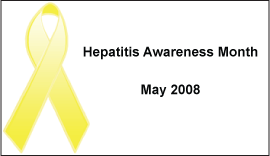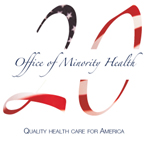|
In this article...
|
A national task force of scientists, health experts and advocates from the non-profit sector is working to raise public awareness, promote prevention and increase screening for Hepatitis B.
In order to reduce health disparities, the Office of Minority Health (OMH) and the Centers for Disease Control and Prevention (CDC) are facilitating the National Task Force on Hepatitis B to address the problem of this disease in the Asian and Pacific Islander (API) community.
Even though a vaccine to prevent Hepatitis B has been available since 1982, there are approximately 1.25 million people who live with chronic Hepatitis B virus (HBV) in the United States, according to the CDC. An estimated 45,000 of those infected are new immigrants, and approximately half of them are Asian and Pacific Islanders.
Kim Nguyen, project coordinator for Within Reach, a non-profit Seattle based organization, strives daily to educate people about their Hepatitis B status.
"We're not a health clinic," said Nguyen, also a member of the National Task Force on Hepatitis B. "We're not a community clinic. The whole point of our existence is [so] that the API (Asian and Pacific Islanders) community knows their status."
 Hepatitis B is a disease caused by the Hepatitis B virus (HBV) that produces inflammation of the liver. Possible routes of transmission include direct blood-to-blood contact, having sex with an infected person without using a condom, needle-sharing among intravenous drug users and infection passed from mother to child during birth.
Hepatitis B is a disease caused by the Hepatitis B virus (HBV) that produces inflammation of the liver. Possible routes of transmission include direct blood-to-blood contact, having sex with an infected person without using a condom, needle-sharing among intravenous drug users and infection passed from mother to child during birth.
For that reason, Within Reach relies on 200 multilingual volunteers to reach out to the API community.
"Really, my role is to provide technical assistance to the volunteers," Nguyen said. "I'll be the conduit, but I can't be everywhere and I don't know the nuances of the Cambodian community."
In this regard, the face-to-face approach has made a difference.
"Initially I thought ‘gosh, people won't want to talk about it because it's a disease and you have to get a shot,' but I'm glad I've been proven wrong," Nguyen said.
Lack of awareness and information doesn't just apply to patients.
"The problem starts in medical school because unfortunately, medicine is so broad that there is only so much time allotted to cover this topic," said Anna Lok, director of Clinical Hepatology and professor of the Department of Internal Medicine at the University of Michigan.
"In many medical schools the people in charge of curriculum do not see hepatitis B as a major health problem in this country," Lok said. "So when you decide how much time goes to teaching diabetes and how much time goes to teaching hepatitis, very little time is allocated to hepatitis."
Since approximately 30 percent of people infected with Hepatitis B don't have signs or symptoms, emphasizing the importance of vaccination and screening are crucial to prevent this silent disease. If left untreated, Hepatitis B can cause cirrhosis, liver cancer, liver failure and death.
"Once you had a vaccine, people thought the problem was solved, but a lot of people don't realize that you need a lot of resources to implement a very effective vaccination program," said Samuel So, director of the Asian Liver Center in the School of Medicine at Stanford University.
"If you don't have the resources and the political will to make it a priority it won't get done," So said. "Now, especially when the vaccines cost so little, we should really shoot for universal vaccination because it would save millions of lives in the long run."
This is why awareness campaigns and prevention messages should be cultural and linguistically appropriate, according to Moon Chen, professor and principal investigator of the Liver Cancer Control Interventions for Asian Americans at the University of California Davis Cancer Center.
"We require cultural sensitivity to know what is the level of limitation of the language as well as the limitation of the scientific knowledge," Chen said, adding that the key issue is to provide tools so the people can take the right action.
Although translation is an important factor to educate the immigrant communities about Hepatitis B, Chen said that doesn't always solve the problem.
"In some languages there's no word for parts of the body that we can't see," he said, adding that understanding cultural nuances is necessary to explain the different aspects of a disease.
Within Reach's volunteers help empower individuals to take care of their health.
"My dad's willing to listen to me," Nguyen said. "My mom says ‘no, I'm feeling fine' and the doctor hasn't said anything about it."
"It's about empowering the patient to ask for the test," she said.
Fia Curley and Isaac Itman are writers for OMHRC. Comments? Email: fcurley@omhrc.gov ; info@omhrc.govLinks
Association of Asian Pacific Community Health Organizations
http://www.aapcho.org 
Information about Hepatitis B
http://digestive.niddk.nih.gov/ddiseases/pubs/hepb_ez/
Hepatitis B
http://www.cdc.gov/ncidod/diseases/hepatitis/b/index.htm
Hepatitis B Facts
http://www.cdc.gov/ncidod/diseases/hepatitis/b/fact.htm
Within Reach
http://withinreachwa.org/ 
Hepatitis B Foundation
http://www.hepb.org/ 
Charles B. Wang Community Health Center
http://www.cbwchc.org/ 
Asian Liver Center
http://liver.stanford.edu/ 
UC Davis Cancer Center
http://www.ucdmc.ucdavis.edu/CANCER/ 
Asian Health Foundation
http://theasianhealthfoundation.org/ 
Hepatitis Foundation International
http://www.hepfi.org/ 
http://www.apiahf.org/

Podcasts
Stopping the Silent Killer: Hepatitis B among Asian Americans[MP3, 4MB, 6:22 Minutes]The ABC of Hepatitis[MP3, 7MB, 9:34 Minutes]
A Comprehensive Immunization Strategy to Eliminate Transmission of Hepatitis B Virus in the United States[MP3, 5MB, 7:56 Minutes]
Publications
What I need to know about Hepatitis B [PDF, 686KB]Hepatitis B: Reference Summary [PDF, 233KB]

Hepatitis B Treatment Information [PDF, 36KB]

You will need Adobe Acrobat® Reader™ to view PDF files located on this site. If you do not already have Adobe Acrobat® Reader™, you can download here for free.




 Links
Links